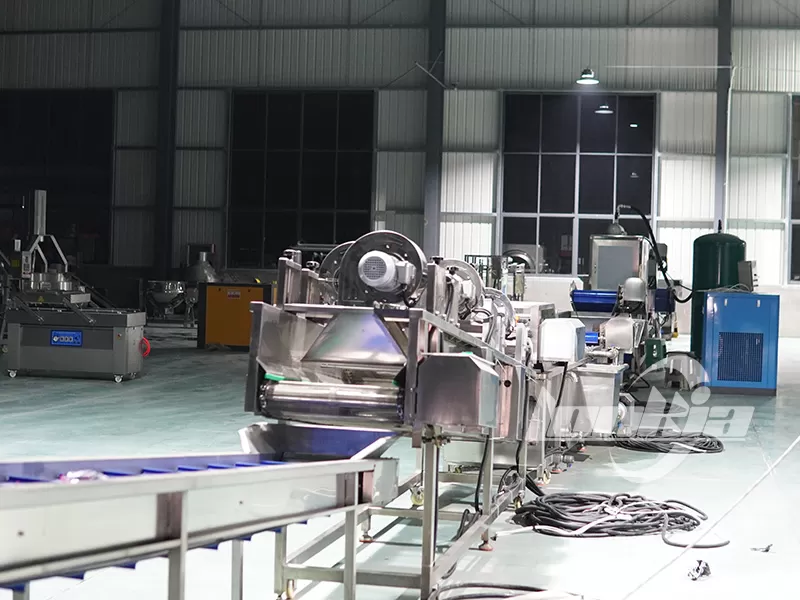When purchasing garlic peeling production lines, price remains one of the core concerns for customers. Significant price variations exist among different brands and configurations. Understanding the factors behind these price differences helps customers select more cost-effective solutions tailored to their specific needs.
Materials and Manufacturing Processes
The primary contact components of garlic peeling production lines are typically constructed from stainless steel. High-quality 304 or 316 stainless steel ensures the equipment remains rust-free and corrosion-resistant after prolonged contact with garlic, while also facilitating easy cleaning. High-standard welding and polishing techniques similarly impact the overall lifespan and hygiene rating of the machinery. Higher material grades and more refined processing techniques naturally result in increased overall costs.

Peeling System and Automation Level
The core of the garlic peeling production line is the pneumatic peeling system. High-end equipment employs stable pneumatic control systems to achieve high peeling rates, low damage rates, and reduced garlic waste. Additionally, the level of automation integration in processes like automatic feeding, sorting, air drying, and discharge significantly impacts pricing. Higher automation reduces reliance on manual labor, boosts production efficiency, and consequently increases equipment costs.
Production Capacity and Configuration
Equipment capacity is a key factor affecting price. Higher capacity necessitates larger main unit power, airflow systems, and conveying devices, thereby increasing overall costs. Furthermore, the inclusion of auxiliary equipment such as clove separators, air dryers, conveyor belts, and control systems directly determines the total line quotation.
Control Systems and Electrical Components
A high-quality electrical control system ensures stable and safe equipment operation. Equipment utilizing branded PLCs and touchscreen control panels offers more intuitive operation and flexible adjustments. Premium electrical components not only enhance user experience but also reduce failure rates and maintenance costs.
After-Sales Service and Technical Support
Superior after-sales support is essential for long-term equipment reliability. Lonkia provides comprehensive services from installation and commissioning to operator training, along with video guidance and remote technical support tailored to customer needs. While a comprehensive after-sales system is reflected in the equipment price, it simultaneously delivers greater value to customers.
Summary
Factors influencing the price of garlic peeling production lines include material quality, manufacturing processes, automation levels, production capacity configurations, electrical systems, and after-sales service. Customers should evaluate performance and cost holistically during selection, rather than focusing solely on quoted prices. Choosing a brand like Lonkia, with extensive manufacturing experience and consistent quality assurance, yields higher returns and lower maintenance costs in subsequent production.

